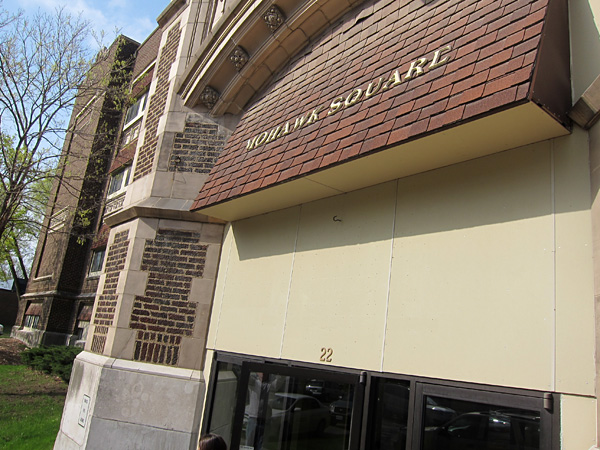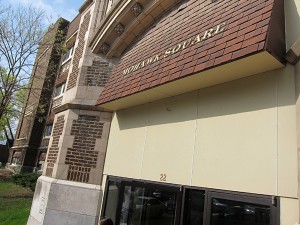The U.S. Department of Agriculture delivered a message Thursday to anyone misusing the food stamp program: You’re being watched, and you will be penalized.
The USDA has proposed tougher sanctions for retailers that are found to be defrauding the federal Supplemental Nutrition Assistance Program, formerly known as food stamps, by trafficking benefits or making otherwise illegal transactions.
(PHOTO: County DHS Office in Mason City, at Mohawk Square.)
The department also announced new requirements and tools to help states make sure benefits go only to eligible individuals who are using the food aid lawfully. That includes a mandate that all applicant names be cross-checked with databases of banned participants, convicted criminals and deceased people.
The proposal to tighten sanctions for retailers will allow the government not only to disqualify an offending business but to impose a fine as well. Right now, a retailer found guilty of fraud can either be fined or disqualified from the program, but not both.
Under the proposal to tighten sanctions, which has to go through the 60-day public input process before it can be enacted, financial penalties will be assessed in proportion to the amount of food assistance benefits an offending store was processing, according to USDA Undersecretary Kevin Concannon.
The federal food aid program is being targeted for fraud-fighting efforts, Concannon said, because it has grown significantly in the past decade — from 17 million recipients costing $17 billion in 2000, to 46 million recipients and nearly $80 billion today.
With a 1 percent fraud rate, that puts the approximate cost of misuse at about $800 million annually, said David Von Behren, acting director of field operations and a spokesman for the USDA Food and Nutrition Service.
Food assistance fraud can take various forms. Offending businesses have trafficked food aid in the past by paying cash for recipients’ food assistance cards so the businesses can scan the cards repeatedly in the store. Other violations include purchases of ineligible items, such as alcohol, cigarettes, vitamins and diapers.
The USDA’s Office of the Inspector General also conducts criminal investigations into alleged fraud, and federal investigations in the 2010 budget year resulted in 195 criminal convictions — including several prison terms for the most serious offenders — and about $36 million in criminal penalties.
“Waste and abuse draws money and food away from children who need it most,” Concannon said. “We cannot afford such losses.”
Of the hundreds of businesses that have participated in the food aid program in Iowa in the past decade, 30 have been either temporarily or permanently disqualified for committing some type of abuse of the system.










